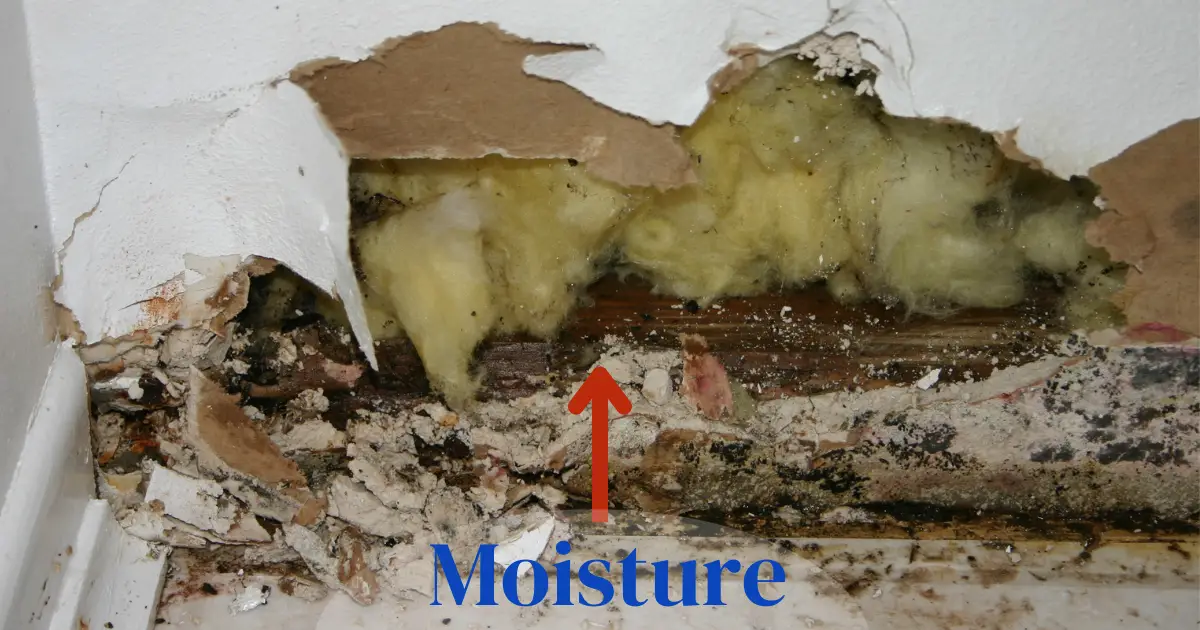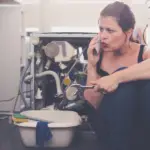[et_pb_section fb_built=”1″ admin_label=”Blog” _builder_version=”4.18.0″ _module_preset=”default” background_color=”#F9F6F5″ custom_padding=”||||false|false” collapsed=”on” global_colors_info=”{}”][et_pb_row _builder_version=”4.20.2″ _module_preset=”default” custom_padding=”||||false|false” global_colors_info=”{}”][et_pb_column type=”4_4″ _builder_version=”4.17.4″ _module_preset=”default” global_colors_info=”{}”][et_pb_text _builder_version=”4.21.0″ _module_preset=”default” header_2_text_color=”gcid-c6518ae1-29db-4f1f-99d4-4111b62b7e61″ hover_enabled=”0″ global_colors_info=”{%22gcid-c6518ae1-29db-4f1f-99d4-4111b62b7e61%22:%91%22header_2_text_color%22%93}” sticky_enabled=”0″]
Slab leaks are a common plumbing problem that can be costly and difficult to detect. They occur when water seeps through a home’s concrete foundation, leaking through the water line and into the ground.
If not addressed quickly, this can cause a spike in your water bill and other problems. Slab leaks tend to happen in older homes where the plumbing system is more likely to wear out over time. It’s important to be aware of slab leaks and take the necessary precautions to ensure they don’t become an issue in your home. In this article, we’ll discuss how to look for signs of a slab leak, what to do if you detect one, and some tips on preventing them.
What is a slab leak?
A slab leak occurs when an underground pipe beneath a concrete slab foundation develops a breach or crack, often due to soil erosion or the foundation has shifted. This can cause water to flow out of the pipe and onto the slab, leading to increased water bills and damage and disruption to the home’s plumbing system. If left untreated, slab leaks can cause further damage and tend to worsen over time.
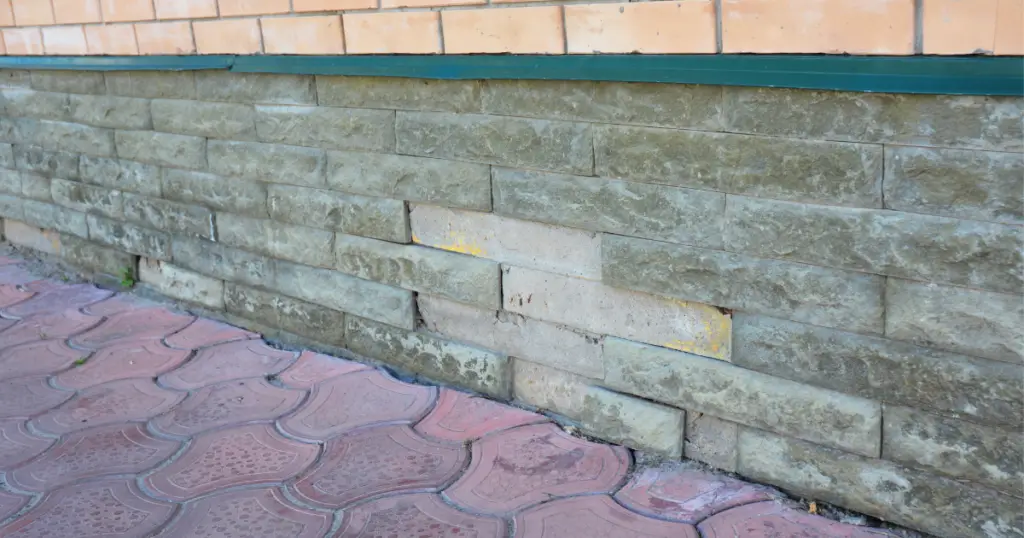
What causes slab leaks?
Slab leaks can be caused by a variety of factors, including:
- Natural shifting of the ground beneath your house: Slab leaks can be caused by earthquakes in certain areas. Even if you don’t live where seismic activity is present, soil and underground waterways shifting due to erosion can still pressure your pipes.
- Deteriorating Copper Pipes and Disintegrating Orangeburg Pipes: Over time, copper pipes may corrode or deteriorate, leading to slow leaks. Similarly, older homes may have Orangeburg pipes (made of tar paper) that are prone to deterioration and disintegration.
- Installation: Poor plumbing system installation can lead to slab leaks over time. Improperly sealed joints in the underground piping and a lack of proper insulation and/or materials can cause additional stress on the pipes and may lead to leaks.
- Water Pressure: Excess water pressure from water mains can put too much strain on old pipes and infrastructure, which can eventually cause them to rupture or crack.
- Water pH: Low pH levels in tap water can cause minerals such as calcium carbonate to deposit on the inner surface of the pipe walls, causing further corrosion due to electrochemical reactions.
- External Pressure: External forces such as soil weight, construction work, or tree roots may push down or shift the foundations that contain underground pipes; this often causes damage if the pipe is not properly secured or insulated against movement.
- Corrosion: Corrosion can occur when oxygen molecules come into contact with metal surfaces that form part of the pipe network. This chemical reaction leads to thinning Pipe walls and eventual leaking/rupturing of pipes. Hot water lines are at a higher risk of abrasive forces since they expand and contract with the rise and fall of temperature. This pipe movement against the surrounding soil, rocks, and concrete can create leaks.
- Abrasion: Hard particles in running water, such as sand or silt, can wear away at a pipe’s interior walls over time — potentially resulting in cracks and subsequent slab leaks.
- Time: Generally speaking, age is one of the biggest factors contributing to slab leaks; over time, pipes naturally experience wear and tear, which may lead to leaky joints or cracks along pipelines beneath slabs/foundations.
How common is a slab leak?
Slab leaks are frequent in homes with concrete foundations, and the resulting water leakage can cause immense destruction to one’s plumbing. More antiquated houses that contain copper or galvanized steel pipes have a greater likelihood of experiencing slab leak problems because they corrode more easily.
Moreover, if your area has either acidic or alkaline-heavy water, then you must be particularly careful since this will put extra strain on your pipes and possibly cause them to deteriorate faster than usual.
In addition, pollutants and detritus in the water can potentially cause abrasion of pipes that may lead to leaks. Furthermore, slab leaks are more prone around hot water pipelines as they heat up and expand against the concrete paving material, weakening their structure over time.
Sadly, a slab leak is an occurrence that no homeowner should ignore, even if your property seems well-maintained or quite aged enough! Sometimes, these problems require quick action with minor plumbing repairs, while others call for repiping solutions.
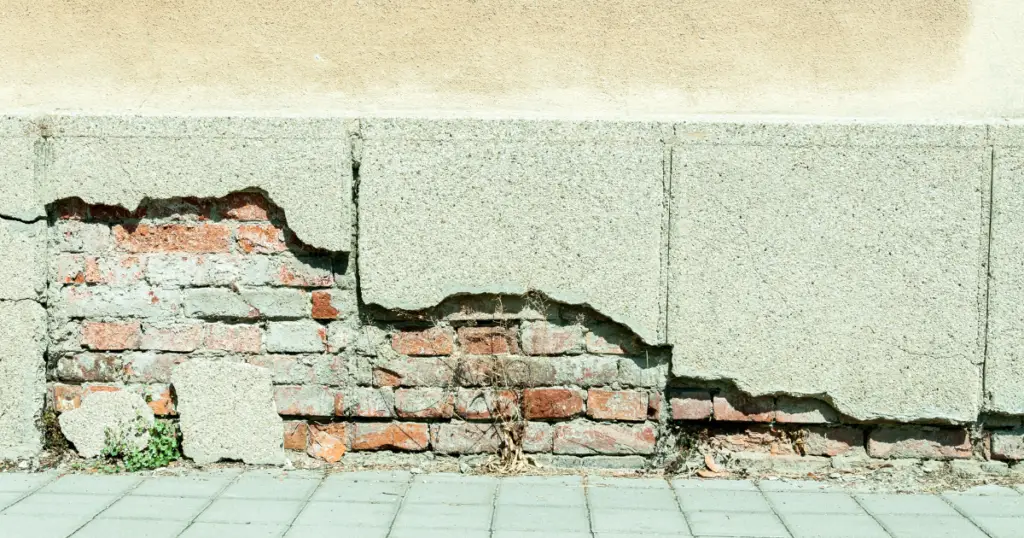
How serious is a slab leak?
Slab leaks are one of the most serious issues that may affect home plumbing systems. Foundational leaks occur when water seeps out of pipes beneath the ground below your home. If left unchecked, they can cause extensive damage to your house and its foundations and lead to extremely high water bills due to unnecessary wastage.
Homeowners must remain vigilant and watch out for signs of slab leak detection, such as persistent hot spots on the floor or walls near pipes, increased unusual noises in walls or floors, or a sudden rise in monthly water bills. Suppose you notice any of these warning signs. In that case, it’s important to contact a professional plumber immediately to assess the situation – this is especially true if your home has old pipes, which may be more prone to cracking and leaking.
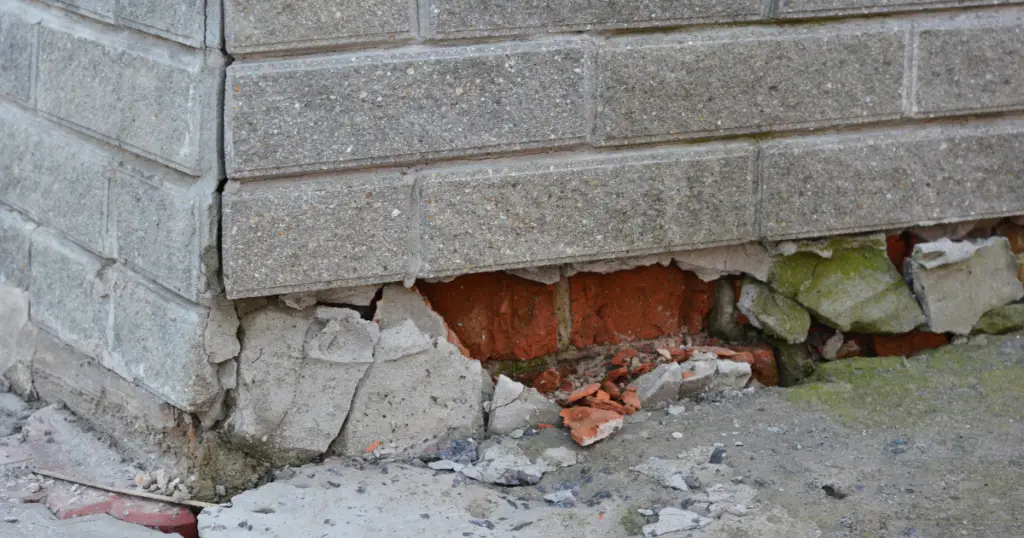
What are the signs of a water leak under the slab?
Water leaks under the slab can be insidious and difficult to detect, but identifying them is important so that you can repair any damage before it worsens. Here are some warning signs to look out for:
- Rising Water Bills: Unexpectedly high water bills may indicate that water is lost somewhere in your home plumbing system.
- Damp Spots: Look out for damp spots on floors or walls, as these could indicate a leak under the slab. Keep an eye on hardwood floors, which will warp and buckle if they get wet.
- Visible Mildew or Mold Growth and Musty Smell: If mold or mildew is present – either visually or by smell – it’s likely that there is moisture in the area from a leak.
- Hot Spots: Warmer than usual spots on floors may point to a hot water pipe leaking beneath your home.
- Low Water Pressure or Constantly Running Water Sound: Low water pressure could indicate a blockage in your plumbing systems caused by debris getting stuck in a pipe that has sprung a leak. If you hear running water when all taps are off, then it could also signal an issue with one of your pipes.
- Running water sound: You may hear running water when all taps are off. This could indicate a slab leak and is a sign that you should investigate further.
- Outdoor water puddles: Visible soil shifts around the building structure or uneven growth in lawn or foundation plants could be a sign of water loss.
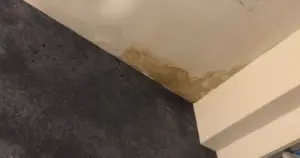
How can I identify if I have a foundation leak?
A foundation leak can be difficult to identify because water can travel through many small cracks before appearing on the surface. The best way to determine if a foundation leak is present is to look out for certain signs, such as:
- Water Stains: Water stains on walls or floors could indicate water seeping into your home from beneath the slab.
- Cracks in Walls or Floors: Cracks in walls or floors can often indicate leakage, particularly when recurring after repairs have been made.
- Uneven Floors: Uneven floors may also point to water pooling from a foundation leak.
- Cracks in the Foundation: Visible cracks may appear outside your home’s foundation, indicating water leakage.
- Sticking Doors and Windows: If you find that doors and windows become difficult to open or close, this could indicate a foundation leak causing shifting in soil arrangement.
- Mildew and Musty Smells: If you notice visible mildew growth or musty smells coming from beneath foundations, this could also suggest water is leaking through.
- Water Collecting Near the Home’s Exterior: Unexpected puddles of water collecting near the exterior of your home are often an indicator of a slab leak.
Finding the source of the leak and carrying out any necessary repairs will help to avoid major damage occurring further down the line.
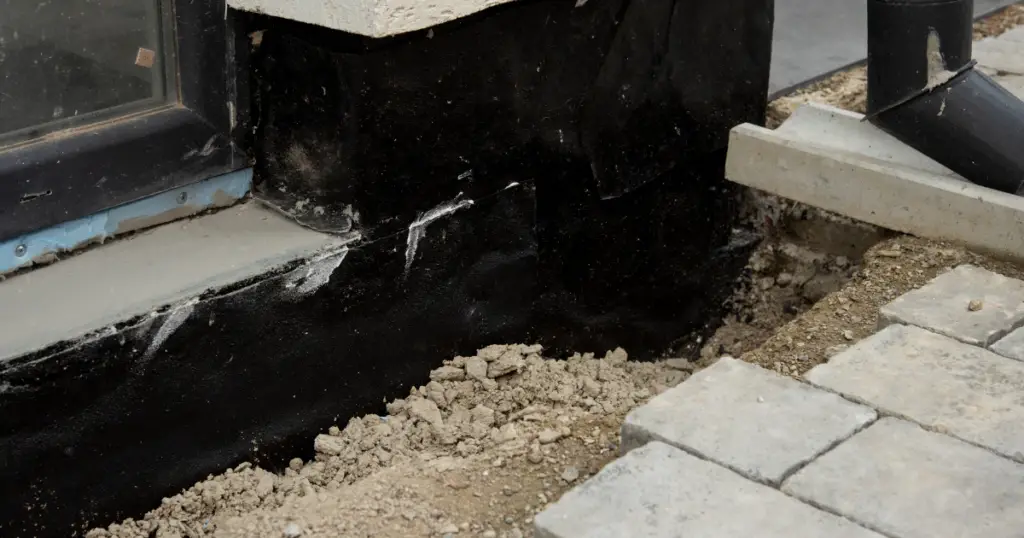
What type of hot water pipes are the best?
From copper to PVC, and even galvanized steel – there is no one-size-fits-all solution when it comes to plumbing. Selecting your home’s best pipe type depends on personal needs and the budget at hand.
To ensure you pick what fits you most accurately, we’ve curated a list of some of the commonest types employed in contemporary plumbing systems below. Weighing the pros and cons of your options should be a key focus before settling on any final decision, as each has its advantages and potential drawbacks.
Cast Iron Pipe
This type of pipe has been around since the mid-1800s and is a popular choice for modern homes due to its strength and durability. However, they can be expensive and prone to corrosion over time.
Rigid Copper Pipes
Good heat conductivity makes copper pipes a great choice for hot water systems, but the material is also harder to work with and somewhat expensive.
Galvanized Steel Pipes
These offer good water pressure along with durability but may corrode more quickly than other materials.
Plastic Pipes
Plastic pipes are lighter, cheaper, and easier to install, making them ideal for DIY projects. Common types include ABS (acrylonitrile butadiene styrene), PVC (polyvinyl chloride), and CPVC (chlorinated polyvinyl chloride).
PEX (Cross-Linked Polyethylene)
This flexible material offers excellent temperature resistance along with solid water pressure. It’s also quite affordable and easy to install without specialized tools or knowledge.
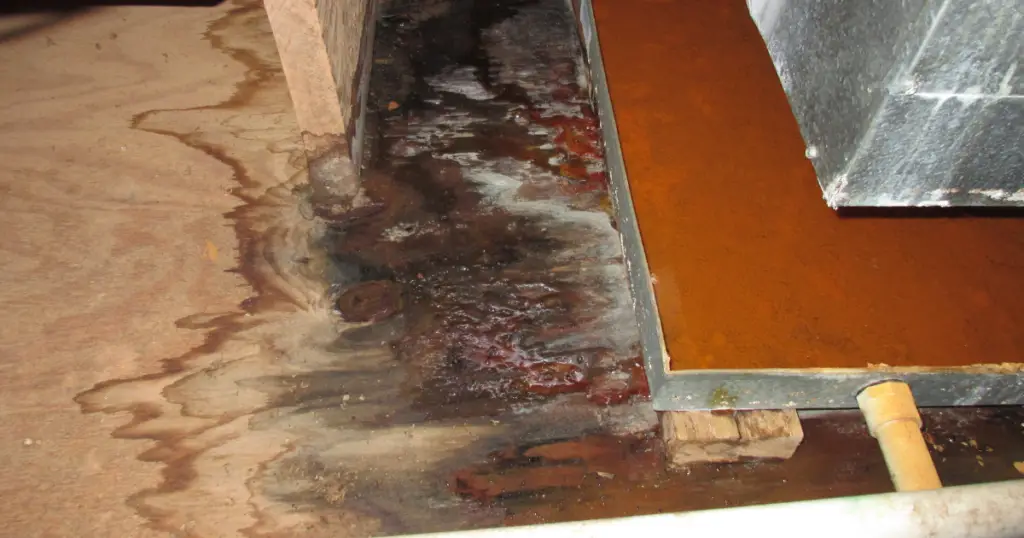
How long can a slab leak go undetected?
Slab leaks can cause severe damage to your home’s foundation and weaken its structure if left undetected for too long. A slab leak is an undetected water leak that occurs beneath the concrete foundation of a building. Although they are hard to detect, there are certain signs one should look out for, including dampness in carpets, ceilings, or floors, mold growth, and water spots on walls.
The amount of time a slab leak can go undetected varies greatly depending on several factors such as the nature and size of the leak, the type of pipe used, and how weakened the water lines have become. Hot water pipes tend to be more prone to slab leaks since heat causes them to expand and contract, resulting in weakened connections over time.
What to do if you have a slab leak?
Taking immediate action is important if you encounter a slab leak in your home. Here are some steps to consider:
- Contact a plumbing expert as soon as possible to investigate the issue and determine the best course of action for its repair.
- Cut back on water usage until the slab leak is fixed to prevent further damage and minimize the cost of repairs.
- Check for weakened water lines underneath your floors. If you notice any signs of moisture or pools of water, you likely have a slab leak.
- Inspect the concrete slab underneath your floors. Look for any wet spots, indicating that water is seeping through the concrete cracks and leaking into your home.
- Contact a plumbing professional if necessary and immediately resolve the problem by replacing damaged pipes or sealing leaks to prevent further water damage from occurring within your home.
How do you fix a slab leak?
Repairing a slab leak can be a complicated and time-consuming process. To fix it, you must first locate the leak on your concrete slab. This may require digging under the slab pipes or inspecting the pipes beneath your home’s foundation.
Once the leak is found, your plumber will repair any damage by either sealing it with an epoxy coating or replacing the old pipe with new ones. Here are the steps for slab leak repair:
- Locate the leak in your concrete slab by inspecting pipes beneath your home’s foundation or digging around the area of the leaking concrete slab.
- Repair any damage done by either sealing it with an epoxy coating or replacing an old pipe with new one.
- If replacing old pipes, ensure that any pipes installed have sufficient water tightness and longevity to prevent future slab leaks from occurring.
- Reinstall pipes and seal them properly to make sure that no further leaks occur in the future due to a weak sealant job or corroded joints for example.
- Check that all adjacent walls, floors, and ceilings are dried out properly before patching up any holes drilled during repairs as water may still seep out of these areas while they are wet if not sealed up properly and quickly enough after repair work has been completed.
How to prevent the concrete slab from leaking?
Slabs can be an ideal foundation for your home, but if not taken care of properly can lead to serious problems such as leaking. To prevent your slab from leaking, you need to take certain steps. Here are a few:
- Install an irrigation system and keep the soil around your house moist all year. We can go for weeks on end without rain, making this step essential. There should be no gap between the foundation and the soil. If you don’t have an irrigation system, use a garden hose a couple of times each week or use a soaker hose.
- Check the caulking around windows and other potential areas where water could seep into cracks and cause pipes beneath the slab to leak.
- Ensure that water heaters are insulated to prevent them from leaking and causing damage to the surrounding area.
- Regularly check any exposed pipes or plumbing fixtures for signs of leakage or damage, and repair any problems immediately before they worsen and cause leaking in the slab foundation itself.
- Try to maintain consistent moisture levels around the slab by watering it or adding mulch or other materials that absorb moisture, as dry spots can create excessive pressure on the foundation, leading to leaks over time.
- Following these simple steps can help ensure that your slab foundation stays leak-free for years to come!
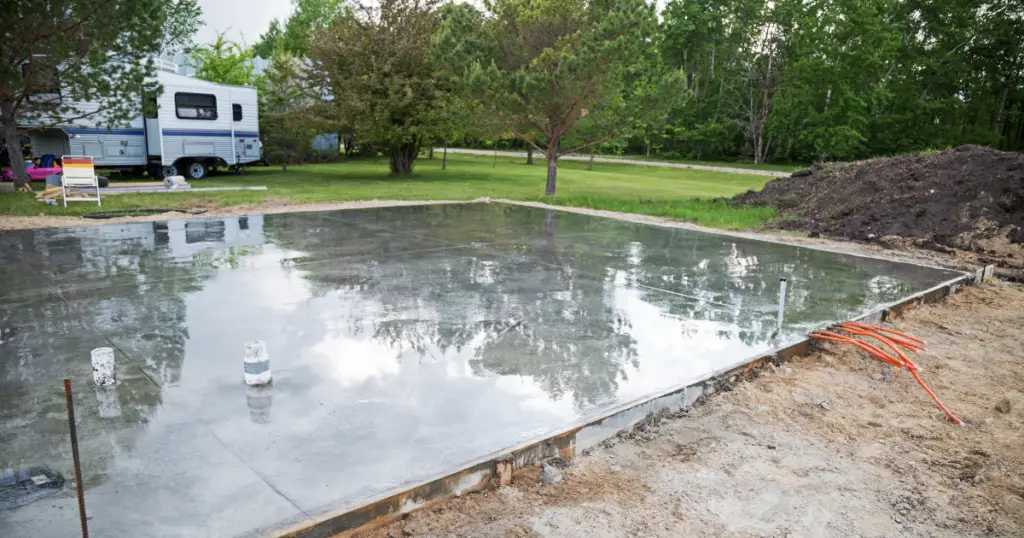
What is the most expensive and the most affordable foundation?
The most expensive foundation option is usually a concrete slab, as it requires extensive excavation and preparation work before pouring the concrete. On the other hand, a pier and beam foundation, also known as a crawl space foundation, tends to be more affordable since it involves less labor and materials. However, the cost of each type can vary depending on factors such as location, size of the home, and materials used.
Does homeowners insurance cover slab leaks?
Homeowners’ insurance usually does not cover slab leak repair, as it typically falls under general maintenance and repairs. However, some insurers may offer coverage for slab leaks if the cause is due to external factors such as weather events or natural disasters.
To those with leakage coverage, foundation and slab repair costs are typically included – but not plumbing expenses. But the silver lining is that these repairs often cost more than other elements. It’s essential to remember that seepage may be subject to a sub-limit, which will limit your insurance company’s responsibility for this kind of damage claim; it won’t necessarily equal the full amount of your property coverage.
Don’t know what to do? Call a Professional
If you’re dealing with a slab leak, the best action is to call a licensed plumber for professional plumbing services. Experienced professionals have the tools and technology to accurately diagnose and assess the issue and pinpoint any code violations that may affect your water bill going forward.
In addition, they can safely handle excavation work required for slab leak repairs—a job best left to certified pros who know how to do it with minimal disruption. With their help, you can get peace of mind knowing that the work is done right.
[/et_pb_text][/et_pb_column][/et_pb_row][/et_pb_section]

